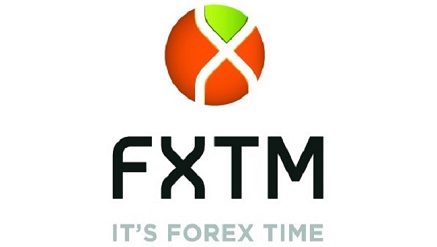E-Financial
ERGP 2017- 2020: How FG Can Achieve 7% Economic Growth- Otunuga

Following the unveiling, on Tuesday, the much expected Economic Recovery and Growth Plan (ERGP) 2017-2020, Lukman Otunuga, research analyst at FXTM has admonished the Government on critical measures to take in order to actualize projected 7% economic growth during the four-year period.
The Federal Government expects the economy to climb out of recession and grow 2.19 percent this year, according to the Ministry of Budget and National Planning.
In a statement made available to the media by Akpandem James, the Media Adviser to the Minister of Budget and National Planning, Senator Udoma Udo Udoma, the ERGP focuses on achieving macroeconomic stability and economic diversification by undertaking fiscal stimulus, ensuring monetary stability and improving the external balance of trade.
The ERGP, which aims to increase oil production to 2.5 million barrels per day and for Nigeria to become a net exporter of refined petroleum products by 2020.
The goal of the ERGP is also to increase export earnings and government revenues by an additional N800 billion a year.
Under the plan, the government also expects to earn N35 billion from the sale of some national assets, including oil joint ventures, and reducing stakes in other oil and non-oil assets.
The government said it would review and possibly remove a ban on accessing foreign exchange for 41 goods and services.
Nigeria hopes to improve tax collection to raise N350 billion per annum, in part, by boosting a luxury goods tax to 15 per cent in 2018 from its current rate of 5 per cent.
The goal is to increase the overall tax to GDP ratio to 15 percent from 6 percent between 2017 and 2020.
In the agriculture sector, the Federal Government wants self-sufficiency in rice by 2018 and in wheat by 2019 or 2020, and hopes to be a net exporter of rice, cashew nuts, groundnuts, cassava and vegetable oil by 2020, according to the plan.
Commenting on the economic recovery plan, Otunuga said, “A feeling of positivity was felt across the Nigerian economy this week, following the highly optimistic economic growth recovery plan for 2017-2020 that painted an encouraging outlook for the nation.
“The four-year plan was anchored around achieving healthy economic growth and sustainable development, boosting sentiment towards Nigeria which is currently in the process of a critical structural transformation. With a strong focus on the nation augmenting both public and private sector efficiency, whilst also increasing overall productivity, a growth forecast of 7% by 2020 could be a possibility”.
He said that moving forward, Nigeria needs to achieve a stable macroeconomic environment, reinvest in agriculture and reinforce infrastructure to promote sustainable economic growth.
“This recovery plan may be received positively by the international investment community and as such, could translate to an increased FDI in the medium to longer term”, Otunuga added.
E-Financial
CBN Expresses Concern Over Foreign Investments in Nigeria Fintechs

The Central Bank of Nigeria in its 2025 Fintech Policy Insight Report, has raised concern over Nigeria’s fintech sector heavily dependent on foreign investment, exposing it to swings in global markets.

The report said the sector has shown resilience despite global economic pressures, but warned that reliance on external capital leaves it vulnerable to market fluctuations.
It would be recalled that startups in the country raised $520m in equity funding in 2024, down from about $747m in 2019, when Nigeria captured roughly 37 per cent of all African startup investment.
This performance, amid significant global macroeconomic gyrations, underscores Nigeria’s position as a key hub for financial innovation. The sharp rise in interest rates in advanced economies during 2022 contributed to a slowdown in venture capital funding.
“These dynamics highlight the importance of developing domestic funding avenues, such as leveraging Nigeria’s capital markets, to reduce currency risk and sustain fintech growth,” the apex bank stated.
Olayemi Cardoso, CBN Governor, said Nigeria is undergoing a rapid and significant financial evolution. Over the past decade, the nation’s fintech landscape has grown from a handful of startups into one of Africa’s most vibrant innovation ecosystems.
“Even amid global economic headwinds, Nigerian fintech firms continued to attract investment and drive change. Today, with improved stability of our currency and domestic economy, it is clearer than ever that financial innovation can advance inclusion at scale,” the executive commented on the report.
In addition to funding, the central bank underscored Nigeria’s continued leadership in digital financial infrastructure. More than 25 per cent of all electronic transactions in Africa’s most populous nation are processed via real-time payment channels, with close to 11 billion transactions processed in 2024, up from five billion in 2022. The report described Nigeria’s instant payments platform, NIBSS NIP, as among the most mature and widely adopted globally.
The report also mentioned the need to strengthen system integrity and reputation, pointing to compliance reforms, anti-money laundering supervision, and consumer protection measures as key priorities for sustaining investor confidence.
By focusing on domestic funding, regulatory modernisation, and innovation infrastructure, the CBN aims to position Nigeria not only as a fintech front-runner but also as a rule-setter whose regulatory lessons are relevant to peer emerging and high-growth economies globally, the central bank said.
Stakeholders surveyed by the CBN also cited compliance costs as a significant challenge to innovation. According to the report, 87.5 per cent of respondents said that the cost of meeting regulatory and risk requirements significantly impacts their capacity to innovate, while delays in product approvals and regulatory timelines also remain major bottlenecks.
The report noted that 62.5 per cent of fintech firms plan to expand regionally, and there is strong support for regulatory pass-porting frameworks to enable compliant expansion into other African markets. However, the CBN warns that such cross-border growth requires a stable funding base and coordinated regulation.
E-Financial
UBA’s Easy and Instant Account Opening Thrills Returnee

After a few years abroad, I returned to Nigeria and faced a dilemma. Let me tell you all about it.

UBA
A few days ago, I was dragging my luggage through Murtala Muhammed International Airport. Everything felt bright and beautiful. Not necessarily in aesthetics, but in the vibrant colours, sounds, and energy all around. After three intensive years in the UK, I was finally back home. Ready for the hustle and bustle of Lagos life, and yes, the comfort of my parents’ home.
The plan was simple. Settle down and get my life on track. I’d sorted the job, and I had my person. But then came my dilemma. Money!. This doesn’t mean I was short of it or had too much of it. The real issue is where to actually keep and manage it in this country with daily dramatic happenings. With just two weeks left before I resumed at my new workplace, I had no time for long queues, endless paperwork, or the classic “Nigeria bank stress.” So, I needed an account, and I needed it fast.
So I turned to my best friend, Google, and typed, “Instant account opening in Nigeria.”
In less than a second, I was redirected to the United Bank for Africa instant account opening portal. A few taps later, and I had a fully functional account. Just like that. I could receive my funds, transfer my funds, and start building my financial life here again.
In less than a second, I was redirected to the United Bank for Africa instant account opening portal. A few taps later, and I had a fully functional account. Just like that. I could receive my funds, transfer my funds, and start building my financial life here again. Talk about ease, and this beautiful experience truly exemplified that definition
I was genuinely amazed. It felt too easy, almost suspiciously easy. But it was real, I mean, really soft like they were just thinking all about me while developing this new feature.
If you’re like me and pressed for time, avoiding unnecessary stress, or just ready to sort your finances without the hassle, consider this your sign.
UBA’s instant account opening is a game-changer. No queues to cut into your precious time. Just you and your phone, minutes away from being banked.
Get started here: https://aop.ubagroup.com
Trust me, if I could do it between unpacking and settling in, you can do it too. Your future self will thank you.
E-Financial
BOI Secures CBN Nod for Sharia Banking, Unlocks Ethical Funding Boom

Bank of Industry (BOI) has received Central Bank of Nigeria (CBN) approval to launch a Non-Interest Banking (NIB) Window, expanding ethical financing for underserved businesses nationwide.

BOI
The move positions BOI to mobilise Sharia-compliant funds, finance assets and raw materials without interest, and target MSMEs plus high-impact sectors previously sidelined by conventional loans.
Divisional Head of Public Relations, Theodora Amechi, said the window aligns BOI with social goals, boosting real economy support and sustainable industrial growth.
MD/CEO Dr. Olasupo Olusi hailed it as a “pivotal moment,” enabling the bank to serve faith-sensitive enterprises shunning riba-based loans.
Analysts see it as CBN’s vote of confidence in BOI’s governance, set to spur innovation and inclusive financing for Nigeria’s ethical business segments.
Established in 1959 as Nigeria’s top Development Finance Institution, BOI now strengthens its drive for broad-based economic transformation.

 General News3 days ago
General News3 days agoGlobacom Donates ₦1Bn to Lagos State Security Trust Fund

 Telecom3 days ago
Telecom3 days agoAirtel Nigeria Commits to Upgrade of its Network Infrastructure for Improved Quality of Service

 E-Business3 days ago
E-Business3 days agoPwC Reveals AI Scaling Gap Slows Africa’s Digital Transformation

 E-Financial3 days ago
E-Financial3 days agoEcobank Profit Jumps 29 Percent to N950Bn

 News3 days ago
News3 days agoCIoD, NIPSS Partner to Deepen Governance, Leadership Standards

 News3 days ago
News3 days agoNRS Chairman Outlines Ways Nigeria can Move from Potential to Economic Prosperity

 News3 days ago
News3 days agoOrya, Ex-NEXIM MD Jailed 490 Years for N2.4Bn Fraud

 News3 days ago
News3 days agoTrump Says He Made no Mistake Sharing Video Depicting Obamas as Apes















